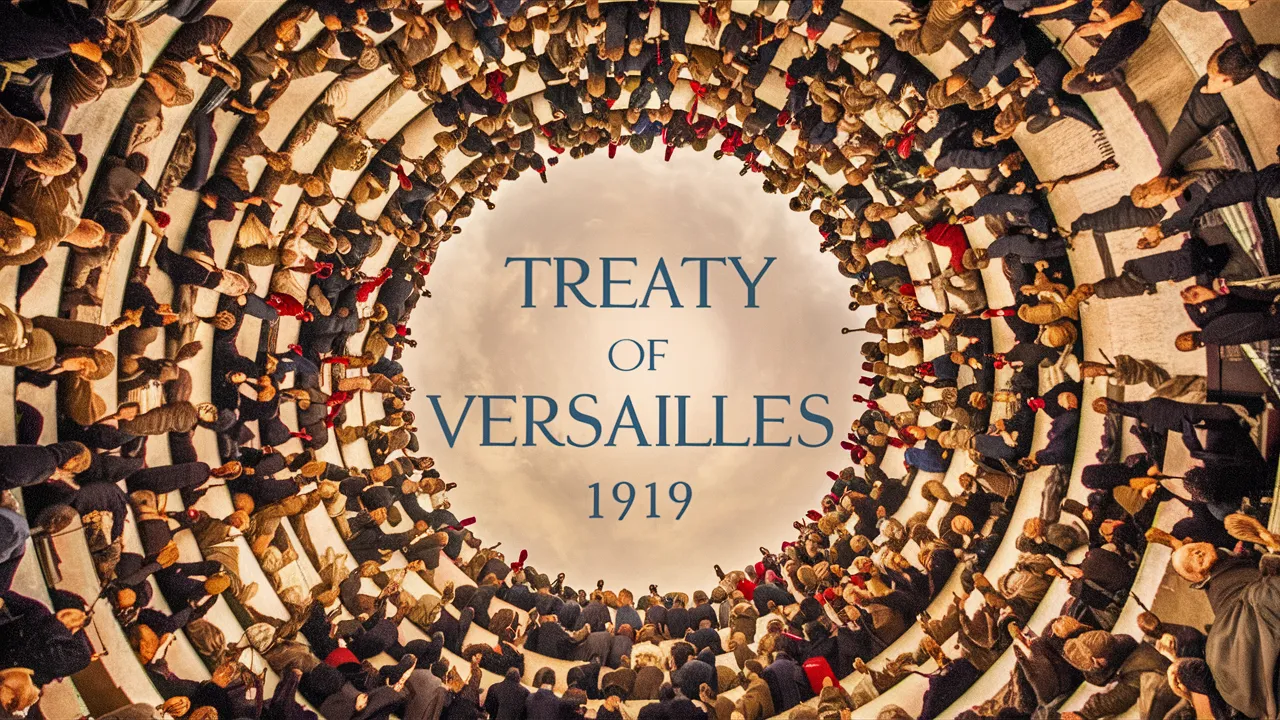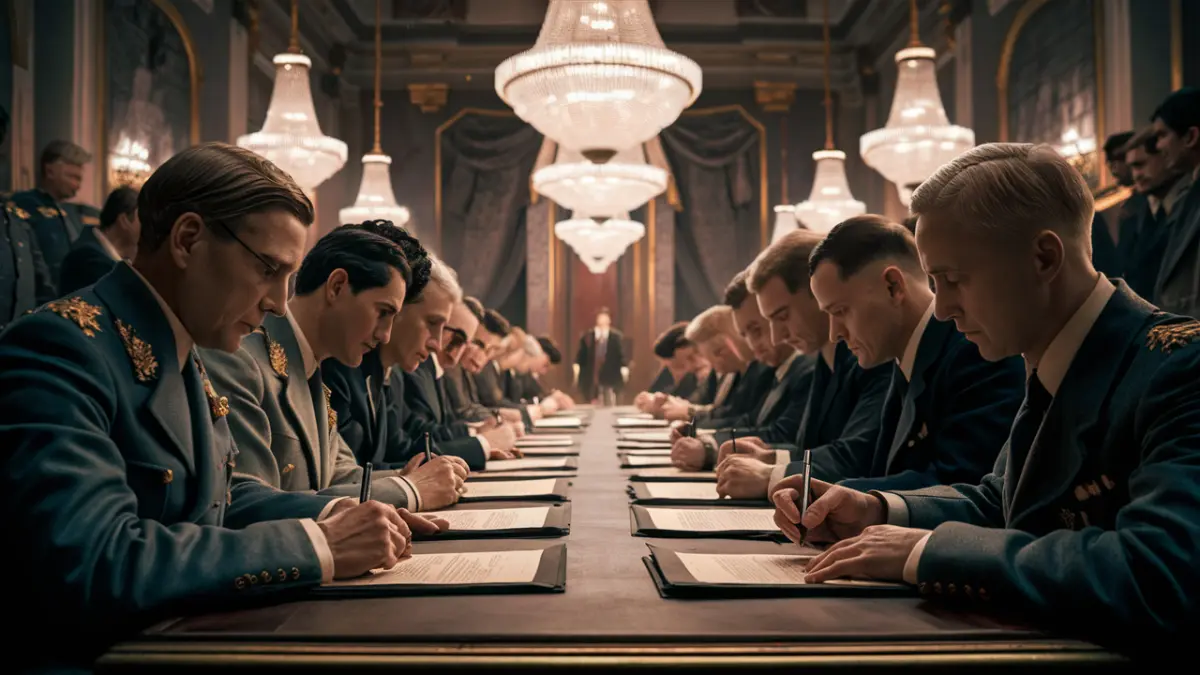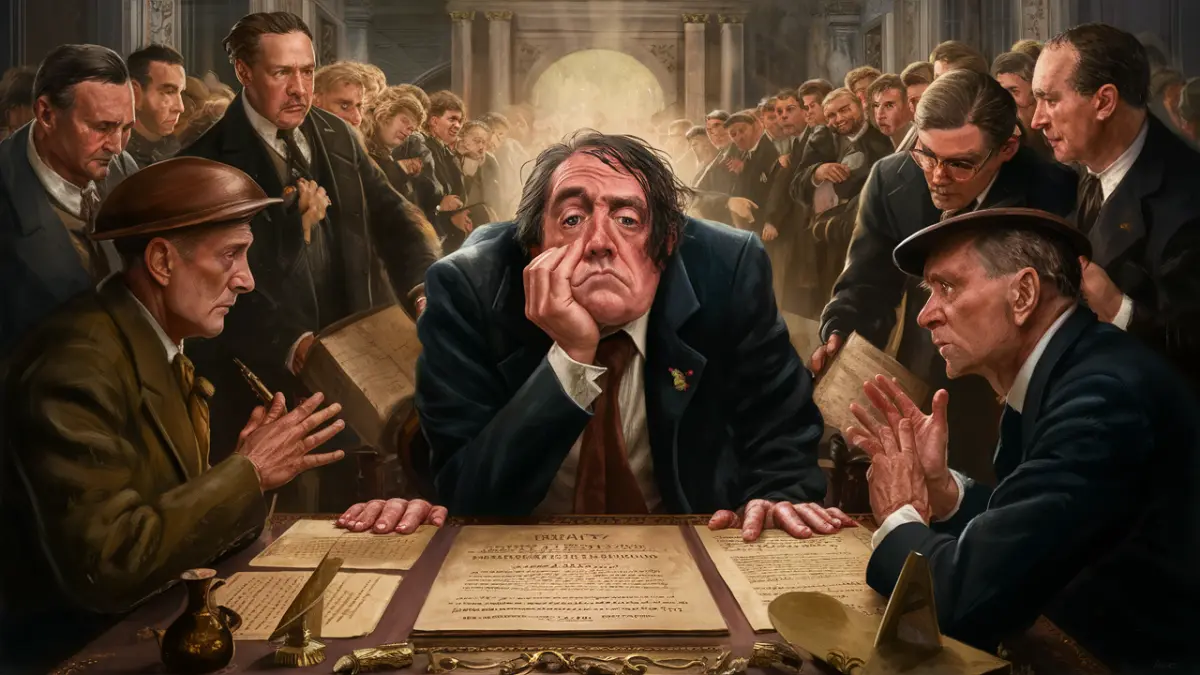Did the Treaty of Versailles start WWII?

You know that feeling when you break something at a friend's house, and then they hit you with a massive bill to cover the damages? Well, imagine that, but on a global scale - and with way higher stakes than a broken vase.
That's basically what happened to Germany after World War I with the Treaty of Versailles, and let's just say...it didn't go over too well. In fact, it set the stage for one of the most devastating conflicts in human history.
The Treaty of Versailles ended the First World War
The Treaty of Versailles was the peace settlement that officially ended World War I, negotiated in 1919.
It imposed extremely harsh terms on Germany, stripping away territories, severely limiting its military capabilities, mandating it pay huge reparations, and explicitly assigning it full blame for the war.
10. The Treaty of Versailles Caused Resentment in Germany
The Treaty of Versailles left Germany feeling bitter and resentful. Being blamed as the sole instigator of World War I was profoundly demoralizing for the German people. This sowed seeds of deep resentment that would have lasting repercussions. The resentment festered and ultimately contributed to the rise of extremism in Germany.
9. Germany Lost Substantial Territory
Under the treaty's terms, Germany was forced to cede approximately 10% of its European territory, along with all its overseas colonies. Losing this territory was a harsh blow that left many Germans feeling violated and resentful of the great powers that imposed these losses.
8. The War Guilt Clause Sparked Outrage
Article 231, the notorious "War Guilt Clause," explicitly held Germany responsible for initiating World War I. This blanket condemnation of Germany as the sole culprit for the war's devastation was seen as blatantly unjust and sparked widespread outrage among the German populace.

7. Reparations Crippled Germany's Economy
In addition to territorial losses, the treaty saddled Germany with massive financial reparations intended to compensate the Allied powers for war damages. This overwhelming debt critically weakened Germany's economy for years after the war, fueling malaise and extremist voices calling for radical solutions.
6. German Military Capabilities Were Severely Curtailed
The treaty instituted strict limits on the size and capabilities of Germany's military forces. Having their armed forces drastically reduced left many Germans feeling emasculated and generated a desire to reassert military strength.
5. The Weimar Republic Struggled Under the Treaty
The fledgling Weimar Republic, Germany's new democratic government, faced immense challenges from the treaty's punitive terms. The economic and territorial losses undermined the republic's fragility, allowing radical anti-democratic movements to gain more traction.
4. It Cultivated a Desire for Vengeance
Understandably, many Germans felt the treaty's terms were overly harsh and unjustly punitive. This cultivated a pervasive desire for vengeance against the nations who had dictated these terms and fueled calls to overturn the treaty's limitations.

3. Economic Turmoil Followed
The demands of reparation payments, coupled with loss of industrial resources and territories, plunged Germany into years of economic instability and turmoil in the aftermath of the treaty. This created conditions ripe for the rise of extremist voices.
2. It Stoked Revanchist Nationalism
Having their nation's dignity repeatedly trampled, Germans increasingly embraced revanchist nationalism - an aggrandizing national pride aimed at reversing the treaty's territorial and military constraints. This proved a potent ideology exploited by Adolf Hitler.
1. It Planted Seeds for World War II
While the treaty did not directly cause World War II, its punitive terms embittered Germany and significantly destabilized the nation politically and economically. This made ultranationalist voices resonate, ultimately allowing the Nazi Party to rise to power on a revanchist platform that led to another world war.
